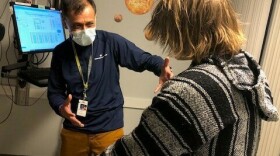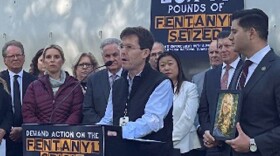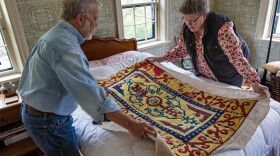Martha Bebinger
-
WBUR's Martha Bebinger lost her nephew, Austen Smith, to a drug overdose last year. In this essay, she describes the pain and questions that linger.
-
The surge in overdose deaths among teens is opening a new path to treatment: pediatricians. A doctor in Massachusetts shows how it works with a 17-year-old patient.
-
Fentanyl fueled unprecedented carnage with 112,000 fatal overdoses. The nation is increasingly divided over how to respond.
-
A mother monitors illegal drug use, at home, to prevent a fatal overdose for her daughter and others addicted to opioids.
-
Renae was so desperate to keep her child alive when so many others have died from overdose that she resorted to extreme measures — and extreme risks. She now supervises drug use in her own home.
-
Turns out diners are more likely to get on board for altruistic reasons rather than health. That's what one hospital learned after it pledged to reduce food-related greenhouse gas emissions.
-
The medical dangers of heat are real. But people often ignore public heat alerts, or don't know how vulnerable they are. A new alert system prompts clinicians to talk about heat with patients.
-
It can be heartbreaking to let go of a hand-made rug or sweater that a loved one didn't quite finish. A group of volunteer knitters, quilters and other crafters offer some closure.
-
Dedicated crafters often leave projects unfinished when they die. Now, there's a group that pairs those half-knitted hats and partly-stitched quilts with new crafters who can finish them for families.
-
Federal restrictions seemed to explain why many doctors weren't prescribing medication for opioid addiction. But some caution that removing those rules isn't enough to overcome hesitancy and stigma.








